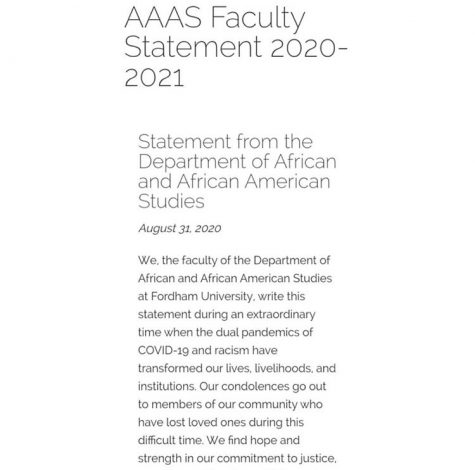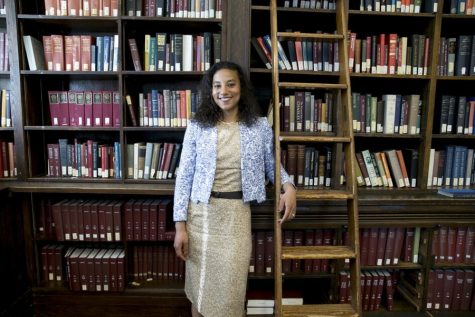Biden Leads Polls, Electoral College Remains Uncertain
Biden and Trump spar in the first presidential debate, which took place last week. (Courtesy of Twitter)
October 7, 2020
A little over a month before the general elections, former Vice President Joe Biden currently leads President Donald Trump in national polls by roughly 8%, according to data gathered by the Financial Times.
Polls estimate that Biden currently has 50.3% of the vote, with Trump polling at an estimated 43.1%, according to the same data. However, the winning candidate will need to win at least 270 electoral votes to claim the presidency, which is harder to predict with national polls than the popular vote outcome, according to CNBC.
It is certainly possible that Biden’s current edge in national polls will not translate into a victory on Election Day. Trump defeated Hilary Clinton in 2016 despite losing the popular vote by more than 2.8 million votes, according to CNBC.
Claire McDonnell, FCRH ’21, president of the Fordham College Democrats, said she feels this election represents a much more dire situation than the 2016 race.
“With the coronavirus, climate change, tensions over systemic racism and police violence and general unrest caused by Trump, it feels like there is a lot more at stake,” she said.
Representatives from the Fordham College Republicans did not respond to request for comment.
Normally, a presidential election serves as a referendum of the current president, said Dr. Robert Hume, a political science professor at Fordham University. The result is often swayed by the state of the economy, he explained.
“When people are doing less well economically, they take it out on the party in power,” said Hume. “But Trump is such a unique candidate in so many respects that it is hard to know whether the regular rules will apply. We are also in an unprecedented situation with the pandemic, and it is hard to know whether the public is likely to blame Trump for the economic downturn or not.”
Trump, it seems, has not suffered a dramatic drop in approval for handling the economy, according to ABC News. 40% of Americans feel the economy is in good shape, up from 31% in August. As the sitting president, this uptick in approval bodes well for Trump.
According to ABC News, Trump has a slight edge over Biden in voter’s trust of the candidate’s handling of the economy, with 49% of voters saying they trust the economy more in Trump’s hands compared to the 46% who said the same of Biden.
Trump and Biden are faced with the difficulty of attracting voters during an election cycle with fewer independent voters, said Hume.
“Both candidates are dealing with a highly polarized electorate that is unwilling to consider candidates from the opposing party,” he said.
Consequently, both presidential candidates are campaigning hard in battleground states where electoral votes are up for grabs, according to CNN. There are 10 key states for Biden and Trump to focus their energy on during this election cycle, though some in this group are significantly more valuable than others, said Nathan Gonzales, the editor of Inside Elections and a contributor to CNN.
“Florida and Pennsylvania are two of the biggest prizes for either candidate and probably must-wins for both Trump and Biden,” he said. “It’s hard to replace 29 or 20 electoral votes with another state.”
Currently, Biden and Trump each have an edge in campaign advertising spending in five of the battleground states, according to CNN. All but one of these 10 states went to Trump in the 2016 election, which Gonzales pointed at as a possible sign that Trump’s ability to gain electoral votes has slipped.
“President Trump is playing defense almost everywhere, and it’s difficult for him to recreate his 2016 victory,” Gonzales said.











If you want a picture to show with your comment, go get a gravatar.